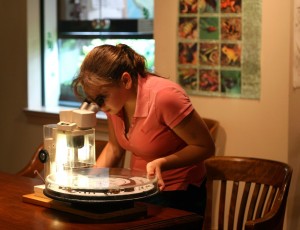Several weeks ago I stumbled across this interesting interview with Professor Brian Cox, who hosts the BBC/Discovery Channel show Wonders of the Universe. I haven’t watched the show itself—while there’s a lot of excellent programming on television, it’s just not something I have time to partake of while chasing my writing dreams—but the article suggests that it’s kind of like a modern take on Carl Sagan’s Cosmos series. That show was certainly very much on my radar as a teen during the 1980s*.
While Professor Cox sounds like an interesting person all around, I was particularly taken with what he had to say about funding science when the applicability of the information gathered isn’t immediately obvious.
You look at how much it costs and you find out, for example, the entire Space Shuttle program costs about the same as the U.K. spent bailing out its banks two years ago in one year. So, in one way, you look at it and say, “Well, that’s expensive.” It’s not expensive relative to some of the other things we spend money on. A Mars mission would’ve been possible by the U.K. on its own before we got into the mess with the financial sector. That just tells you that the money is there, but it gets spent on other things. It also sounds like science fiction, or that it’s ludicrous naïveté to think that these things should be priorities. When there are so many problems on Earth, why should we explore the universe? But our point, which is how we started this interview actually, is that by exploring the universe we have delivered modern civilization. It’s that way around. Reduced childhood mortality rates, increased life expectancy—all those things—they all come from people who are curious about how the universe works and finding things out.
There’s a very famous quote from [Alexander] Fleming, when he discovered penicillin, he said something like, “On September something 1928, I didn’t expect to wake up and revolutionize medicine.” He woke up playing around with little bits of mold in his kitchen, basically. He was just interested in moldy things. [Laughs.] And he revolutionized everybody’s life. Everybody. Virtually everybody who is over the age of about 40 or 50 is alive today because of antibiotics. Virtually everybody would have died if it hadn’t been for that. And it wasn’t someone trying to discover antibiotics that did it. It was someone exploring nature. So, the argument, “Couldn’t we just spend our money making everybody’s lives better?” We are doing that. That’s what exploration actually does.
Cox then regales the interviewer with specific examples of things the world takes for granted that we have as a result of the much maligned Hubble Space Telescope, CERN (of the Hadron Collider fame), and pure science as a whole: HTTP [the protocol that allows you to read websites in the way you do now], modern medical imaging technology, radio and television, transistors, computers, cell phones, etc.
That got me thinking about how we’ve created this phony cult of utility. I see this a lot in education: When am I going to have to use this? And most modern pedagogy buys into the idea that knowledge must be defended on these grounds, but I don’t. I think maybe instead of making up bogus examples of bakers who set up systems of equations to figure out how many ingredients to buy—examples that kids always see right through, incidentally—we should cite examples like the above.
In my writing experience, story ideas don’t tend to come when I sit down and say, Now I’m going to have a story idea. Instead they come when I’m pursuing something totally unrelated. Then I can sit down and flesh them out on purpose. I suspect science can be similar. While a lot of things are discovered when we actively search for them, I suspect a lot of those discoveries come because we were already close, because we already knew there was something to find. And I suspect that as often as not, what pointed us in a particular direction in the first place was not looking for a cure for common diseases or for a more efficient medium for storing data, but a pure desire to understand how the universe works.
Let me come right out and say it: just about every damn thing that makes life nice, just about every thing that keeps us from living in medieval squalor, has at least some of its roots in a love of knowledge, in science pursued for science’s own sake. So when kids ask, “Why should I learn this,” why not answer, “You should learn it because learning enriches your life and your thought process. You should learn this because loving knowledge is what separates us from the animals who can’t look past their next meal. You should learn this because you have absolutely no way of knowing which of the things you learn will make your life better, or when, or how, but they will.”
At which point they’ll roll their eyes and go right back to texting about how lame their teacher is.
* Thirty years later, I still pretty much can’t say the word “billions” without thinking of Sagan.


 Subscribe via RSS
Subscribe via RSS
5 Responses to Knowledge for Its Own Sake